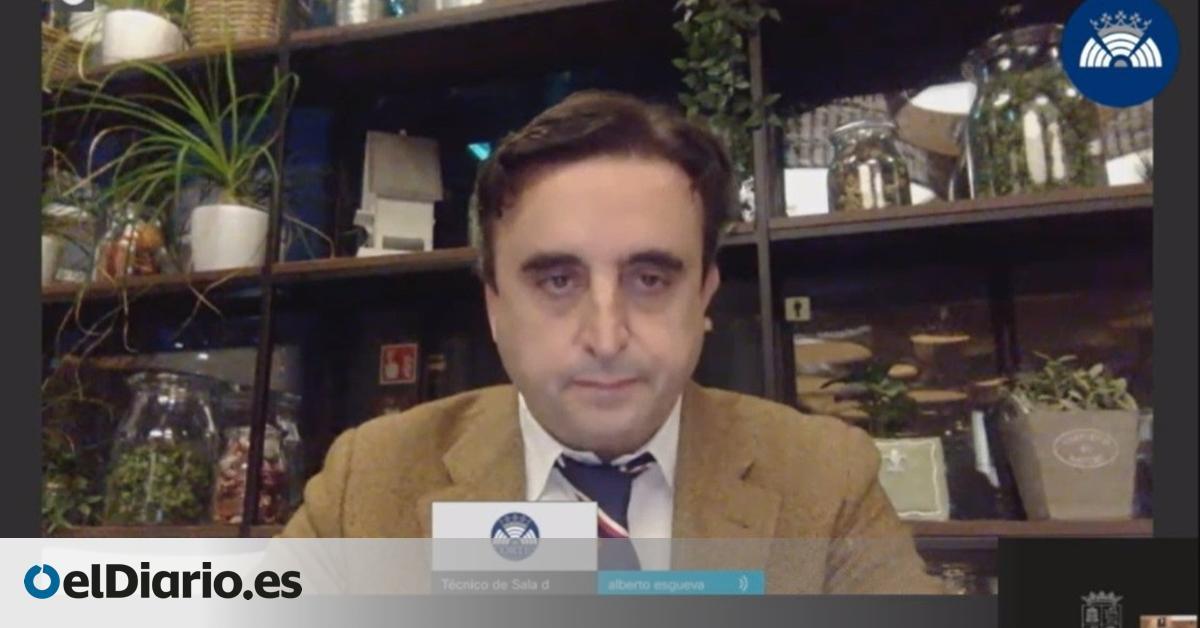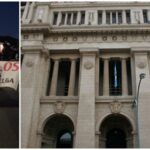
The National Court remains divided on the taxes that Alberto Esgueva must pay, accused of being the ringleader of the wind plot that collected 80 million euros for wind turbine permits in Castilla y León under the PP government. One of the sections of the Court considers that the Treasury made a bureaucratic error when inspecting it from Madrid and already exempted it in 2022 from paying 9.4 million in taxes. On January 19, in a new ruling, he was released from paying 888,089 euros for non-taxed VAT. Another section, on the other hand, considers that the inspections were well done and the Tax Agency has appealed to the Supreme Court.
The love story between the Treasury and Esgueva begins in the 2000s, when he was a high-ranking officer of a public company in Castilla y León and, according to the Anti-Corruption Prosecutor’s Office, facilitated wind farm permits in exchange for tens of millions in commissions (50 of them, only from Iberdrola). The Valladolid Treasury inspection came across the case when reviewing the accounts of Intercatia Corporación, a company from Esgueva that, without personnel or hardly any means, had a formidable business.
The Treasury not only began a round of inspections, but in 2014 it sent a harsh report to Anti-Corruption that gave rise to the wind plot. That summary affected the Government of Juan Vicente Herrera and is about to go to trial. Anti-corruption requests 12 years in prison for Esgueva.
At the same time, the Treasury and Esgueva’s companies began a series of lawsuits, since the Tax Agency claimed almost 20 million euros for unpaid taxes. Lawsuits, as many as liquidations, began to reach the National Court a year ago.
One of the sections, the sixth, agreed with Esgueva. He considered that the Treasury had made a bureaucratic mistake from the start. The inspection that uncovered everything was carried out in Valladolid.
The report that uncovered the case contains a fundamental note. He affirms that the San Cayetano company, the one that received the millions from the electric companies, “had its tax domicile on Núñez de Balboa street in Madrid, where it was neither located nor known.” San Cayetano became Intercatia Corporación, which years later appealed to the Court and alleged, among other things, that the inspection should have been carried out by the Tax Agency in Madrid, where it is based, and not by the one in Valladolid. .
In 2022, one of the sections of the Hearing agreed with Intercatia. In two sentences, it considered that this error of origin vitiated the entire procedure, generated defenselessness and freed the company from the exalted regional charge of paying 9.4 million euros.
Those sentences gave a bullet to the dome of the wind power plot to try to knock down the entire criminal case arguing that the inspection of origin was contaminated.
But in July 2022, another section, the second, changed the pace and agreed with the Treasury. He considered that it was irrelevant that the inspection was from Valladolid. That detail had caused a schism in the National Court.
On January 19, the sixth section, the first that exempted Intercatia from paying taxes, saw another of the lawsuits. In this case, 888,080 euros for VAT between unpaid fee and penalty. The sentence, whose rapporteur was Judge Berta Santillán, insists on its first interpretation favorable to the accused. “The identity in all the resources and claims, claims despite the fact that they are liquidations and different periods, forces us to make the same decision out of respect for the principle of unity of doctrine and legal certainty.”
The resolution is only three pages long because the court maintains that it has already said everything: “The full agreement between the litigants prevents us from having to resort to the hateful and no less common tendency to reproduce, through a simple computer download, what I said to motivate the present sentence, since the reasons are already known by the parties that concur here. It will suffice that we refer to what was then expressed to give an adequate response to the requirement of effective judicial protection proclaimed in article 24.1 of the Constitution. That article enshrines the right not to suffer defenselessness.
In its sentence, the Court cites the jurisprudence of the Supreme Court and quickly airs the matter: “What has been said makes it unnecessary to transcribe and reiterate the legal reasoning of the sentences already handed down to fully dismiss the present appeal, which, as we have already warned, are known to all the disputing parties”.
The first sentences generated discomfort in the Treasury, which took the case to the Supreme Court, which will have to settle the taxes for the alleged illegal commissions. Whether collecting those 50 million was a crime or not corresponds to the macro-cause that began to be investigated almost a decade ago.
Esgueva, whose defense has not responded to this newspaper, justified in 2020, before the investigation commission of the autonomous courts, that everything had been an example of good companies: “We were lucky to have a very good partner, which was Iberdrola , But nothing more. Because Iberdrola was number one at that time, number one in the world in wind energy. That was the key. But nothing else”.
Esgueva’s defense believes that these favorable National Court rulings should serve to knock down the entire investigation. In a brief presented on February 6, he believes that the case should be dropped. “It must be based on a fundamental fact that we understand inevitably vitiates or contaminates the rest of the case,” says the defense brief, alluding to the fact that all part of “a report-complaint presented by the territorial service of Valladolid of the State Agency of the Tax Administration, having detected in this body facts that present evidence of possible crimes of prevarication and bribery in the granting of administrative authorizations for the installation of wind energy parks in the Community of Castilla y León”. But he recalls that in the National Court that inspection “has been declared void for not complying with the law.”
The lawyers for Esgueva, who was in Poland developing real estate deals when the case broke out, consider that “the nullity of said inspection actions must inevitably extend to the Report-complaint […] trigger of the accusation”.
It is not the only argument they use. Like most of the rest of the defendants, he points out that there have been problems in the investigation, computer errors, faulty reports and failure to meet deadlines. But this is the only reason that has the endorsement of the National Court.
——————-
The value of journalism
elDiario.es is financed by the contributions of 60,000 members who support us. Thanks to them, we can write articles like this one and that all readers – including those who cannot pay – have access to our information. But we ask you to think for a moment about our situation. Unlike other media, we do not shut down our journalism. And that makes it much more difficult for us than for other media to convince readers of the need to pay.
If you get information from elDiario.es and you believe that our journalism is important, and that it is worthwhile for it to exist and reach as many people as possible, support us. Because our work is necessary, and because elDiario.es needs it. Become a member, become a member, of elDiario.es.
Source: www.eldiario.es

